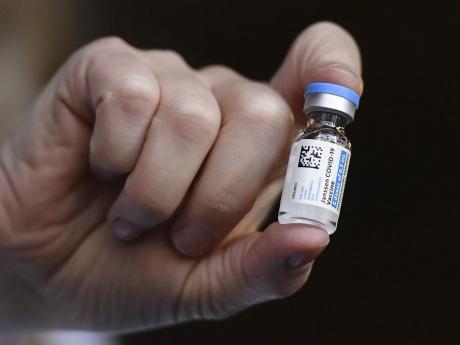US weighs next steps for J&J virus vaccine amid blood clot mystery
United States health officials are weighing next steps as they investigate a handful of unusual blood clots in people who received Johnson & Johnson’s COVID-19 vaccine — a one-dose shot that many countries were eagerly awaiting to help speed virus protection.
It’s not clear if the exceedingly rare reports — so far, six cases out of more than seven million inoculations in the US — really are linked to the J&J vaccine.
But the government recommended a pause in J&J vaccinations on Tuesday, just a week after European regulators declared that such clots are a rare but possible risk with the AstraZeneca vaccine, a shot made in a similar way but not yet approved for use in the US.
The clots occurred in strange places, in veins that drain blood from the brain, and in people with abnormally low levels of clot-forming platelets.
The six cases raised an alarm bell because that number is at least three times more than experts would have expected to see even of more typical brain-drainage clots, said Dr Tom Shimabukuro of the Centers for Disease Control and Prevention.
The CDC called its advisers together Wednesday for a public debate about how to handle the J&J vaccine while authorities nail down exactly what’s happening.
“What we have here is a picture of clots forming in large vessels where we have low platelets,” Shimabukuro explained.
“This usually doesn’t happen,” but it’s similar to European reports with the AstraZeneca vaccine.
The clot concerns could undermine public confidence in a vaccine many hoped would help some of the hardest-to-reach populations — in poor countries or in places like homeless shelters in the US.
“We know we are fighting a war against COVID-19,” Dr Peter Marks, the Food and Drug Administration’s vaccine chief, said Tuesday.
But when it comes to side effects, “we don’t, in the United States, have a lot of tolerance for friendly fire.”
Health officials recommended the J&J timeout in part to make sure doctors know how to recognise and treat the unusual condition.
On Wednesday, the CDC said four of the six women with the unusual clots were treated with a blood thinner named heparin — a treatment the government is warning doctors to avoid.
The US set up intensive systems to track the safety of COVID-19 vaccines, knowing that side effects too rare to have occurred in studies of thousands of people could pop up once millions rolled up their sleeves.
Shimabukuro said spotting such a rare potential risk amid the nation’s huge vaccine rollout “is an example of a success story for vaccine safety.”
The setback for J&J comes as the worldwide death toll from COVID-19 approaches 3 million, including more than 560,000 who perished in the US, which continues to report tens of thousands of new infections every day and an average of almost 1,000 deaths.
So far, the J&J vaccine has been a minor player in US vaccinations.
More than 122 million Americans have received at least one vaccine dose, the vast majority with shots made by Moderna or Pfizer, and nearly 23% are fully vaccinated.
Follow The Gleaner on Twitter and Instagram @JamaicaGleaner and on Facebook @GleanerJamaica. Send us a message on WhatsApp at 1-876-499-0169 or email us @onlinefeedback@gleanerjm.com or editors@gleanerjm.com.

